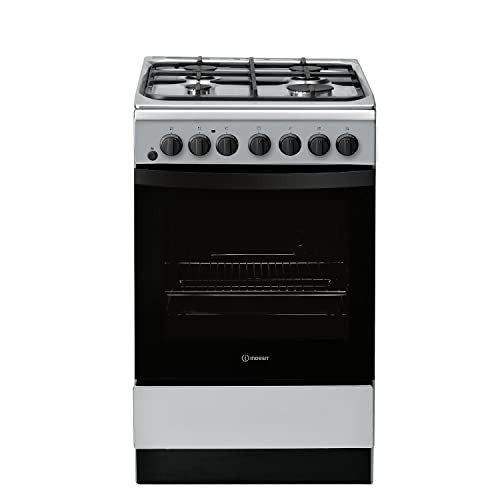15 Gifts For The Sales Ovens Lover In Your Life
The Comprehensive Guide to Sales Ovens: Understanding Their Importance, Types, and Best Practices
Sales ovens, a category of industrial cooking equipment, are crucial players in the culinary and foodservice market. These appliances, designed to prepare food in big amounts effectively, are vital in dining establishments, catering services, and other food establishments. This article delves into the importance of sales ovens, their types, and best practices for selecting and using them successfully.
What Are Sales Ovens?
Sales ovens, broadly defined, are cooking gadgets used mainly in business cooking areas to cook, bake, or heat numerous food items at scale. Their design enables them to handle higher volume cooking compared to standard domestic ovens. Offered the nature of food service, sales ovens typically integrate innovative innovations that promote speed, efficiency, and even cooking.
Value of Sales Ovens in the Food Industry
Sales ovens play a pivotal role in food production for numerous reasons:
- Efficiency: Sales ovens can prepare food more quickly and evenly than traditional ovens, enabling chefs to prepare meals in less time.
- Consistency: With accurate temperature controls, sales ovens guarantee that the food is cooked equally every time, maintaining quality across countless portions.
- Flexibility: Many sales ovens can handle various cooking approaches consisting of baking, roasting, broiling, and even steaming, making them ideal for varied menus.
- Energy Savings: Modern sales ovens are typically created to be energy-efficient, minimizing operational expenses for businesses.
Kinds Of Sales Ovens
The marketplace offers a range of sales ovens, each fit for particular cooking requirements and types of food. Here are the most common types:
Type of Oven
Description
Best For
Convection Ovens
Use a fan to circulate hot air, guaranteeing even cooking.
Baking and roasting items.
Combi-Ovens
A mix of convection and steam cooking, offering versatility in cooking methods.
Varied menus needing steaming and baking.
Conveyor Ovens
Use a moving belt to constantly cook food, suitable for high-volume operations.
Fast food and pizza.
Deck Ovens
Function different compartments (decks) that can be individually managed, using high performance.
Artisan bread and pastries.
Rotisserie Ovens
Developed to gradually roast meat on a spit, offering tender and juicy results.
Roasted meats.
Picking the Right Sales Oven
Selecting the appropriate sales oven for a particular service needs consideration of a number of factors:
- Volume Needs: Assess the volume of food that needs to be prepared. Higher volume means going with conveyor or combi-ovens.
- Menu Diversity: Understanding what kind of dishes will be cooked can guide the choice process. For instance, a pastry shop might require a deck oven, while a restaurant may take advantage of a stove.
- Space Availability: Measure kitchen area to guarantee the ovens fit effectively and have actually needed ventilation.
- Spending plan: Commercial ovens can vary considerably in price, so develop a budget that considers long-lasting operational cost savings.
- Energy Efficiency: Opt for ovens that have energy ratings to keep energy costs manageable.
Best Practices for Using Sales Ovens
Effectively operating a sales oven includes more than easy use. Here are some best practices to remember:
Regular Maintenance: Schedule regular upkeep to tidy and inspect the performance of the oven. Hobs Sale guarantees durability and performance.
Preheating: Always pre-heat the oven to the preferred temperature level before putting food inside for consistent cooking outcomes.
Utilize Thermometers: For precision, utilize an oven thermometer to ensure that temperature levels remain consistent, particularly for baking.
Follow Cooking Times: Adhere to recommended cooking times based upon the kind of food being prepared. Adjustments might be required for various ovens.
Avoid Overcrowding: Ensure enough space around food items in the oven to permit appropriate air blood circulation.
The Future of Sales Ovens
As innovation advances, so do the abilities of sales ovens. Innovations such as wise innovation, energy-efficient styles, and improved safety functions are ending up being more popular. These improvements guarantee to boost cooking performance while also fulfilling sustainability goals.
Frequently Asked Questions about Sales Ovens
Q1: How do I clean my sales oven?
A: Regular cleaning includes removing any food debris, cleaning down surfaces with non-corrosive cleaners, and following specific cleaning suggestions from the manufacturer.
Q2: What's the life expectancy of a business oven?
A: Typically, a properly maintained commercial oven can last anywhere from 10 to 20 years, depending upon usage and upkeep.
Q3: Can sales ovens be used for baking?
A: Yes, numerous kinds of sales ovens, particularly convection and deck ovens, are specifically developed for baking a range of items.
Q4: Are there energy-efficient alternatives for sales ovens?
A: Yes, numerous makers offer energy-efficient models that decrease energy consumption without sacrificing performance.
Q5: How often should I perform upkeep on my sales oven?
A: It's advisable to carry out regular maintenance checks every month or quarter, depending upon use levels. In addition, a thorough inspection should happen at least yearly.
Sales ovens are important in the contemporary culinary landscape. Their ability to cook large quantities of food efficiently makes them important for dining establishments, catering services, and other food establishments. By understanding the different types, selecting the ideal oven, and sticking to best practices, food service organizations can enhance their cooking procedures, boost their offerings, and eventually delight their consumers with impressive cooking creations.
